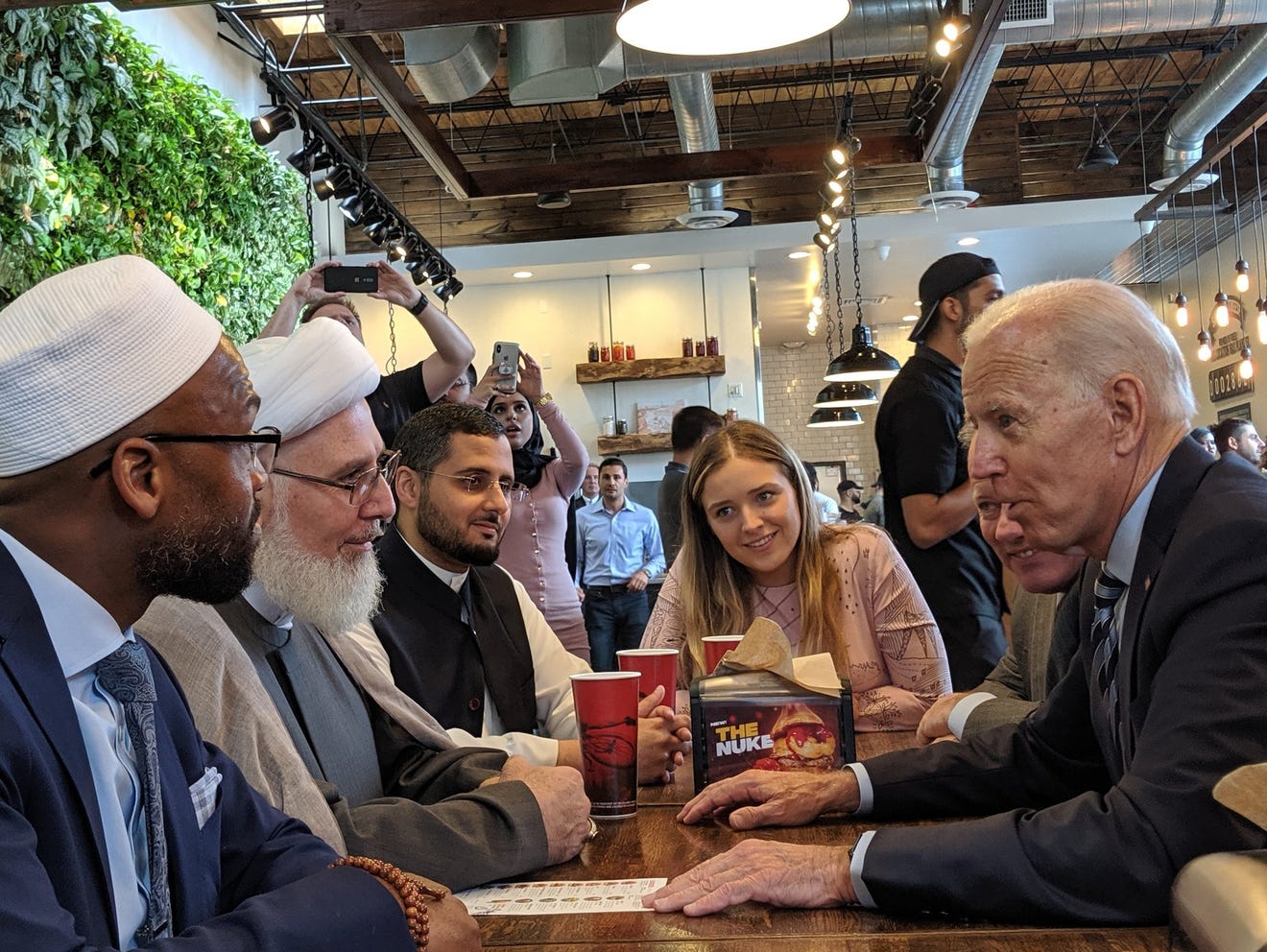Opinion: Muslims need to advance justice, community welfare this election
ArticlesFor anyone who believes that Muslims have no particular role to play in American politics, or that Islam and representative democracy are somehow incompatible, consider the fact more than 2 million adult-aged Muslim Americans could be eligible to vote in November. Muslim Americans are a significant and growing voting bloc, a diverse community with stories and experiences that need to be heard and lessons that they must impart. Their vote matters.
Around the world, we have unique political models with different ways of determining national leaders and adopting national visions. But in the next months, the citizens of the United States — Muslims included — will have their say on who should serve as their president, arguably the most powerful man on the planet.
As the secretary general of the world’s largest non-governmental Islamic body, I see many misconceptions about the role Muslims should play in such a momentous decision — in the United States or anywhere else.
I feel it is critical to make a few things completely clear: Islam is not partisan. It does not take electoral sides, favor candidates or parties, or impose ideological judgements on rival political platforms. Anyone who states that Muslims must favor one side or the other based on their religion is hijacking the true nature of our faith, which is beyond the realm of politics.
But at the same time, our beliefs do compel us to engage wholeheartedly in our national projects and do all we can to promote the well-being of our entire community. As one of the fastest growing demographics in America, that means voting and actively participating in the U.S. political process.
The Quran teaches us that our primary mission is to seek justice, that we are called to live together in peace and that each of us should promote the welfare of all those around us. This obligation applies not only to those who look like us, speak like us, or worship like us, but to all of us.
Every individual, no matter what religion they follow, must use his or her heart and mind to cast a ballot for the candidate they most believe in. The candidate that would most effectively advance peace and tolerance, strive for social and economic justice and judge all equally — regardless of faith, ethnicity, cultural heritage or country of origin.
If there is one thing the COVID-19 pandemic should have taught all of us — Muslim and non-Muslim, American and non-American — it is that we all bear responsibility for the protection of one another. And despite the horrific scale of the suffering, it is the acts of charity, bravery and benevolence that will enable all of us to emerge stronger, more united, more determined to build a more resilient tomorrow. In short, our goodness is what can reunite our global community.
As the leader of the Muslim World League, which is based in the holy city of Mecca, I will be watching the U.S. election with hundreds of millions of other Muslims around the world. Many of us fall awe-struck every four years as we watch the wonderful examples of civic participation and cultural diversity that define the American political system.
The number of Muslim Americans is expected to double in the next three decades. As a rapidly expanding demographic, I continue to be impressed to see the growing ranks of Muslim Americans assuming leadership positions across all sectors of U.S. life. From the halls of Congress to the boardrooms of Fortune 500 companies, to arts, culture and social advocacy.
The November election will be a highly competitive contest. And as Muslim Americans prepare for another iteration of the great U.S. experiment in democratic governance, my only wish is that they not only participate and vote. But that they do so with an unrestrained commitment to justice, the advancement of the community and the well-being of everyone in their country.
Never in our lifetimes has civic engagement and the health and safety of all of humanity been of greater importance, or the question of whom we should render trusts more paramount.
Mohammad Al-Issa is secretary general of the Muslim World League, an international non-governmental Islamic organization based in Mecca, Saudi Arabia.
This article was originally published in [Detroit News]


